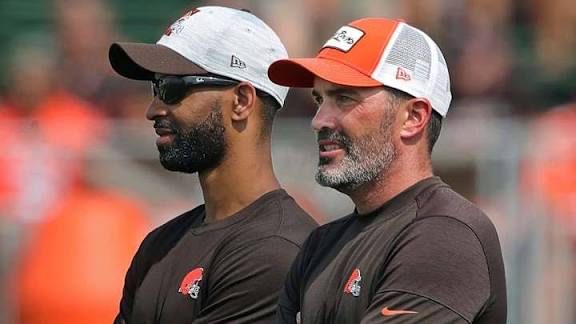Tiger Woods lifted himself up off the golf cart that carried him from the tournament practice area to the front of the most famous clubhouse in the world and took his hat off as he walked through its front doors. A minute later, he hobbled through the back doors of that same clubhouse and made his way toward the practice putting green next to the first tee. On the way, he stopped to hug his mother, and then the wall of humans in front of him parted like the Red Sea for the very famous man wearing red and black.
Tiger Woods shot a second straight 6-over 78 on Sunday afternoon at the 2022 Masters, a score that is merely a footnote to one of the most historical four-round stretches we’ve ever seen at a major championship from someone who didn’t win the tournament.
Woods became increasingly incapacitated as the week wore on. His hitch Thursday morning turned into a full-on limp by Sunday afternoon. This was not unexpected for someone who, this time last year, watched the event from a bed that you could control with a remote.
While it was tough to watch at times — this proud and mighty champion, a five-time green jacket holder, four-putting and struggling his way to 301 strokes (+13) over the course of four days at Augusta National — it also revealed his insatiable desire to compete and gratitude for simply being able to do so over 72 holes.
“I had the same questions [about whether I could complete four rounds]. It was an unbelievable feeling to just have the patrons and the support out there,” Woods told CBS after walking off the course on Sunday. “I wasn’t exactly playing my best out there, but to just have the support out there — an appreciation from all the fans — I don’t think words can really describe that given where I was a little over a year ago and what my prospects were at that time.
“To end up here and be able to play all four rounds, even a month ago, I didn’t know if I could pull this off. I think it was a positive. I’ve got some work to do, and I’m looking forward to it.”
In the Trackman era, where players are worried about dialing in their swings like they’re instruments on a spaceship, this “I’m going to figure out how to beat you without my best stuff” ethos is increasingly rare.
Tiger did beat a lot of people. On Thursday, he took down eight of the top 12 players in the world. On Friday, he made the cut (for the 22nd straight time at the Masters) playing his first professional tournament in 17 months; 39 of his peers went home early. His week was not void of golf highlights, it’s just that the highlights were not the most important part of his week.
Two instances stand out in a week that was full of enough micro-moments to full an entire book. The first came Thursday when Woods was asked what he would consider a successful week at Augusta. His brief, one-word answer was both full of humility and told the entire story of the journey he’s experienced … without describing it in any detail at all.
Tiger, I realize you only define victory one way — and that’s winning the tournament — but was this the equivalent of a victory to you, just showing up and being able to compete like you did?
Tiger Woods: “Yes.”
On Saturday afternoon, it was as cold, windy and nasty as it’s been around Augusta probably since Zach Johnson won the 2007 Masters. Not exactly picturesque conditions for a man whose right leg might contain more metal than his golf bag. Tiger was not playing well. He was 4 over on the day and headed to the 12th where he last made a 10 in the final round of the 2020 Masters, his last competitive round before returning to Augusta this week.
Woods made a two this time around. The roar from that hole was perhaps the loudest of an unusually quiet Saturday. He waved back at the mass of patrons watching him play his way through Amen Corner, and it hit me that the most impressive part of Tiger’s week has been how, despite immense pain and several opportunities to eject, he’s refused to pull the rip cord. His refusal to fold, out of pride both for himself and the game, stands out above all of his tremendous gifts.
“Never give up. Always chase after your dreams,” Woods said this week when he was asked what he hopes people are drawing from his Masters performance. “I fight each and every day. Each and every day is a challenge. Each and every day presents its own different challenges for all of us. I wake up and start the fight all over again.”
That was harder to see when he was 24 and hitting every shot you could imagine on command because, though his mind and his ability to bend reality in his direction helped him achieve many of those 82 wins, they were not preeminent. When you hit it farther than anyone has ever seen, while displaying the touch of Seve Ballesteros and the art of Lee Trevino, who’s paying attention to anything else?
Now that the physical gifts are diminished and his body won’t let him hit all the shots that made him a five-time champion of this tournament, the insistence that he can still be great is clearer.
This is not dissimilar from what we saw from Phil Mickelson last year. I watched him hit flop shots by himself the Tuesday before the Masters in a tucked away corner of Augusta National. A man who had nothing to grind for other than his love of the game and his appetite for greatness was grinding anyway. A month later, he won the PGA Championship.
I don’t know that Tiger has another major championship win in him, and if his body doesn’t improve from here, he almost certainly does not. However, Woods proved this week that he’s going to keep showing up.
Because when you strip everything else away from Tiger Woods — the fame, the hype, the wins and the myriad trouble he’s gotten himself into — you’re left with a man who is obsessed with one thing.
Tiger Woods does not crave winning as much as he burns to compete. When he shows up on Tuesday proclaiming he can win a sixth green jacket, what he really means is that he believes he can compete for one.
For Tiger, as evidenced throughout the course of his career, competing and winning have been mostly synonymous. The problem for Woods is they won’t be going forward because his battered body will start to split those realities apart.
What we saw at Augusta National this week is perhaps the rarest thing in sports: An all-time champion who would rather be back in the arena — even at 50% capacity — than outside of it admiring all that he’s accomplished.
As the monstrous gallery stood and screamed at the 72nd hole on Sunday while the leaders went off the first tee just behind them all, their great champion — maybe the greatest champion — dragged himself to an ignominious ending, at least on the leaderboard.
Nobody was looking at Tiger Woods’ score because nobody cared what it said. Instead, they were delighted — just as he was — that Tiger Woods, after 14 months of hell and no reprieve in sight, was able to enter the arena one more time to do what he’s done better than anyone in history: compete.


